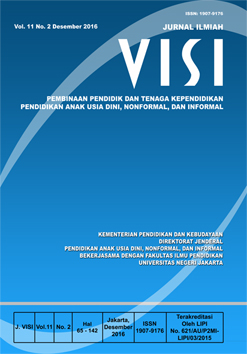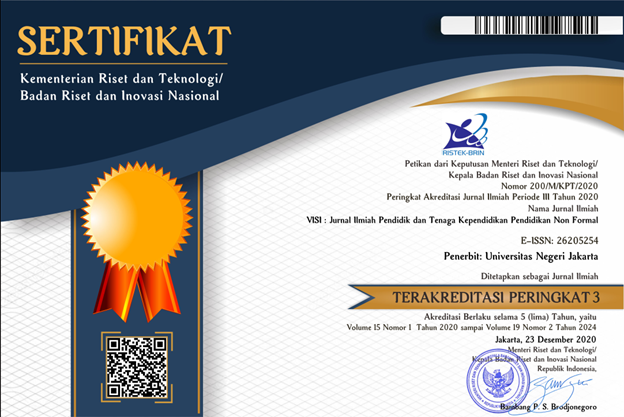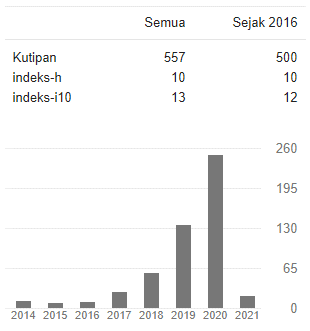MENINGKATKAN KEMAMPUAN MOTORIK KASAR MELALUI PERMAINAN TRADISIONAL “SIKODOKA†BAGI ANAK USIA DINI BERLATAR BELAKANG TUNA GRAHITA
DOI:
https://doi.org/10.21009/JIV.1102.2Keywords:
intellectual disability, Sikodoka traditional game, gross motor, young childrenAbstract
Physical development in some children with intellectual disability could be delayed. This physical delays can trouble their movement skills. Therefore these children need practices that could improve their gross motoric skills. This research aimed to try out Sikodoka game in order to improve gross motor skills in young children with intellectual disability. Method used was class action research conducted in two cycles and four meetings. Research participants were three young children aged seven to nine years old. The research was conducted in August 2016 taking palce in Kelapa Lima Special Needs School, Kupang. Data collection techniques used were observation and test. Gross motor skills indicators were jumping with one foot skill, jumping with both feet, keeping body balance while collecting “eraâ€, tossing “era†correctly inside the square, and grasping “era†skillfully. Results showed that there was improvement in gross motor skills with mean improvement from pre-cycle 38% increased 23% to 61% in cycle 1. From cycle 1 to cycle 2 improved again 43% making the condition after cycle 2 was 95%. According to the evaluation, recommendations to teachers are to be sensitive to children’s condition that are easy to be divided in their focus, using reward system to attract children’s attention, need to compliment more, uses clapping variations to recover children’s focus, reducing activities that could trigger loud activities, using simple languages, dividing sentences that are clear and not long, and reprating games because children with intellectual disability are easy to forget.
Downloads
Published
How to Cite
Issue
Section
License
Authors who publish with this Journal agree to the following terms:
- Author retain copyright and grant the journal right of first publication with the work simultaneously licensed under a creative commons attribution licensethat allow others to share the work within an acknowledgement of the work’s authorship and initial publication of this journal.
- Authors are able to enter into separate, additional contractual arrangementfor the non-exclusive distribution of the journal’s published version of the work (e.g. acknowledgement of its initial publication in this journal).
- Authors are permitted and encouraged to post their work online(e.g. in institutional repositories or on their websites) prior to and during the submission process, as it can lead to productive exchanges, as well as earlier and greater citation of published works.
- Users/public use of this website will be licensed to CC BY-NC-SA Creative Commons Attribution-NonCommercial-ShareAlike 4.0 International License









